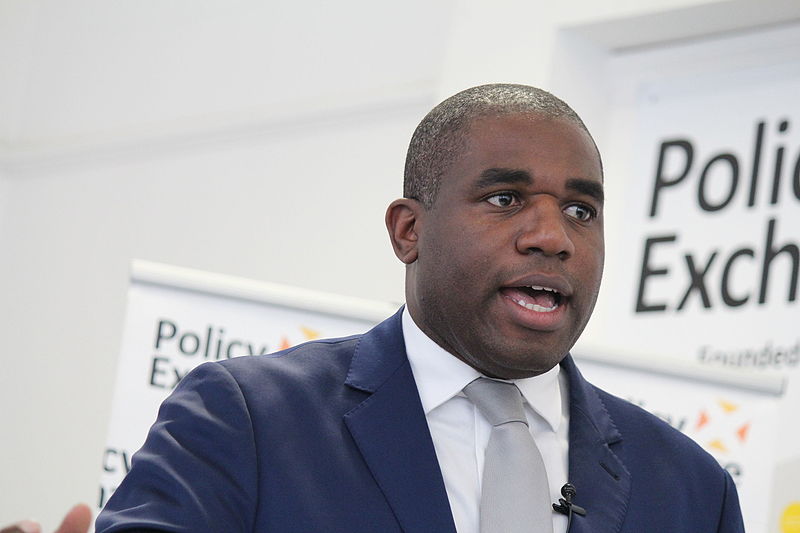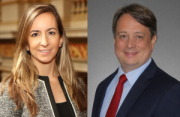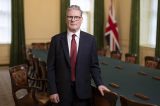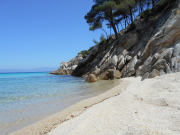
David Lammy, the UK Foreign Secretary, hosted a reception to commemorate 75 years of the modern Commonwealth, reflecting on its achievements and future
potential. In his speech, Lammy highlighted the importance of the Commonwealth in fostering global cooperation and looked ahead to this year’s Commonwealth summit, set to take place in Samoa.
Well your Excellencies, guests, friends,
It’s wonderful, really, really quite wonderful to host so many remarkable people here today. Together, you tell a wonderful, modern, diverse story about what is our Commonwealth.
A network which connects people around the world – athletes, artists, activists, authors. An organisation which I believe is vital to tackling the challenges before us today. And a family which I am very, very proud to call my own.
This is personally a very, very special moment for me as Foreign Secretary. As many of you will know, my parents came to Britain from Guyana, as part of the Windrush generation.
And I stand before you as Foreign Secretary, tracing my lineage back to Africa through of course the trans-Atlantic slave trade. So I feel the pain and anguish of that heritage, as did my parents.
But I share with them a keen awareness of my Commonwealth roots, a sense of belonging and solidarity with all members of the Commonwealth diaspora and the powerful optimism for what a multicultural society can be.
And this spirit drives me as Foreign Secretary, as I seek to reconnect Britain with the world. A task in which I believe a revived, reinvigorated Commonwealth has a significant role to play. This belief reflects the fact that the world has changed radically in 75 years since the Commonwealth was born.
You could argue there have been 3 phases to our organisation’s history:
an imperial phase under His Majesty George VI
a post-colonial phase under Her Majesty Elizabeth II
and now, under His Majesty Charles III, we have entered a new multipolar phase
And this mirrors changes in the wider world. We are now well and truly in a multipolar age. And we face global challenges which can only be overcome if we all – all of us, the Global North and the Global South – focus on tackling them together.
The Commonwealth must show how we can contribute then to achieving that unity of purpose. In doing so, we benefit from an array of legacies.
Like that of my dear friend Baroness Scotland, who has overseen the establishment of the Climate Finance Hub and the Blue Charter, the growth in our membership, and ensured the Commonwealth’s voice is heard at the top tables of diplomacy across the world.
And that of the late, great Guyanese Secretary-General, Sir ‘Sonny’ Ramphal, Who embedded the Commonwealth’s reputation as a unique platform for taking action on global challenges, for giving a voice to small states, for helping to forge closer, more equitable, relations between the Global North and the Global South.
Next month, we will select our new Secretary-General. Africa is central to the world’s future – demographically, economically, and of course geopolitically. So I am excited that our next Secretary-General will hail from one of our African members. And I look forward to working with them to build on their predecessors’ efforts.
Of course, we are also building on the enormous legacy of Her late Majesty The Queen. Two years since her passing, we treasure her role in cementing ties between us. The warmth and affection in which she is held across the Commonwealth testifies, both to her skills as a diplomat – she was, quite simply, the greatest diplomat of our time and to her vision for how to do diplomacy – a vision, frankly, far ahead of its time.
A vision of leaders in the Global North and Global South working together, in a spirit of partnership. A vision that the Commonwealth exemplifies, as a forum in which voices from all corners of the globe – one third of the world’s population – are heard and respected.
His Majesty the King, as Head of the Commonwealth, has been clear that he shares the vision of a family of nations in tackling the challenges of our time, strengthened by sharing diverse perspectives and experiences. And it is a vision embraced by the new British Government as well.
This government will only succeed in reconnecting Britain with the world on the basis of mutual respect. And so it is natural for us to want to seize the opportunities the Commonwealth offers, particularly with leaders gathering in Samoa in October.
Friends, at that meeting, I believe passionately that leaders should come together, listen to one another, engage in a spirit of respect.
But it is also vital that we:
focus on the existential challenges we share
focus on the actions which can make the biggest difference
focus on how we maximise the Commonwealth’s enormous, enormous potential
And I set just 3 priority areas that we could look at.
The first of these is supporting economic growth. The Commonwealth’s combined GDP is expected to reach nineteen-and-a-half trillion dollars by the end of 2027 – nearly double what it was ten years before. We should take advantage of that, focusing more on increasing investment flows.
In Samoa, with other members, I will launch a comprehensive plan of action to pool our shared expertise, boost investment opportunities, and harness new technologies for all over the next 2 years. Growth must be shared. Growth must be sustainable. And we must deliver it together.
The next area, of course, is tackling the climate emergency. There is no long-term geopolitical stability without climate stability. And there can be no climate stability without a common sense of purpose coordinated action in the Global North and Global South. I therefore want the Commonwealth to play a clearer, more powerful role in building a green and sustainable future.
In Samoa, we must further raise our ambitions for the Climate Finance Access Hub commit to stronger support for Small Island Developing States and step-up action to protect nature and the ocean. Climate action is essential for passing a liveable planet to future generations. And we must deliver it together.
And the final area that we could focus on is education of course and the skills of wonderful, beautiful young people. As Member of Parliament representing an inner city constituency here in London, I know what it does to young people to be told that they have no future.
And as someone who was fortunate enough because of that hard work of my parents, that great Windrush generation I was fortunate enough to have the chance to study at Harvard University, I know how educational opportunities can set you on a completely different path.
In Samoa, we must support even more scholarships, places and learning via our various excellent education programmes. Sixty percent of Commonwealth citizens are not yet 30 years old. They deserve the chance to benefit from greater opportunities in life. And we must deliver this together.
Delivering together – I have tried to give a small flavour of how we can do this in Samoa. I am very grateful to the Government and people of Samoa for preparing so effectively for CHOGM and our gathering – and welcome the first such meeting in a Pacific Island Country.
In his final address as Secretary-General, Sir ‘Sonny’ Ramphal reflected on how such gatherings feel like a bit of a club. Members share a special relationship, an intimacy, with one another. And this creates a particular chemistry.
In Samoa, leaders with different points of view, facing different circumstances, will nevertheless come together, understand each other’s point of view and perspective, and agree to deliver things together.
That is what makes the Commonwealth unique. That is the vision of Her Late Majesty The Queen. The vision she championed. And that is the spirit which I engage with the Commonwealth, in Samoa and beyond.
Thank you so much for the privilege to serve.
Photo by Policy Exchange, Wikimedia commons.







































